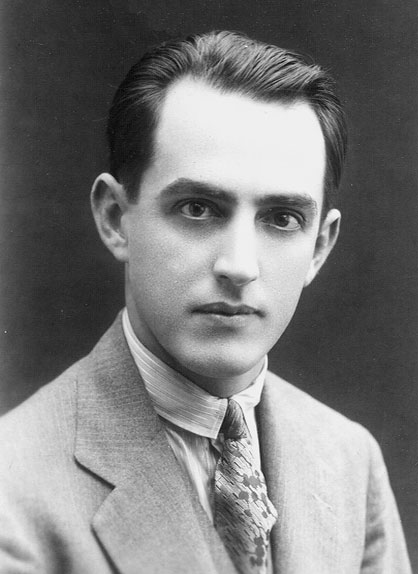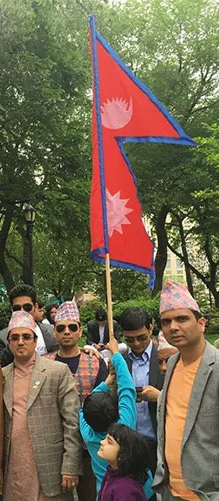 Last Wednesday, I continued my series on People Who Are Not What They Seem with Malba Tahan, the Islamic intellectual and writer who was actually the fictional alter ego of a Brazilian math teacher, created to help his students learn word problems.
Last Wednesday, I continued my series on People Who Are Not What They Seem with Malba Tahan, the Islamic intellectual and writer who was actually the fictional alter ego of a Brazilian math teacher, created to help his students learn word problems.
That post ended on a mathematical cliffhanger (bwahahahaha!). Our heroes, Tahan and his friend Beremiz Samir, happened upon an argument among three brothers about how to divide up their father’s inheritance. Their father left them a herd of 35 camels, with the following instructions (as reported by the eldest brother):
According to the express wishes of my father half of them belong to me, one-third to my brother Hamed, and one-ninth to Harim, the youngest.
An occasional series about people who are Not What They Seem
Part 1: Joe Magarac
Part 2: Iron Eyes Cody
Part 3: Malba Tahan (with BONUS MATH)
Part 4: Major William Martin
Part 5: Count Victor Lustig
Part 6: The Grass Mud Horse
Part 7: The Tree Lobster
Samir’s solution was clever, but it required some risk – he added into the herd the camel that Tahan was riding, making a new herd of 36. He then divided the new herd according to the father’s instructions: one-half (18) to the eldest, one-third (12) to the middle, and one-ninth (4) to the youngest. All three brothers were satisfied with this arrangement, which left two camels remaining. One, of course, was Tahan’s that had been added at the beginning. Samir requested the other as his payment for arranging this solution – and since all three brothers were satisfied, they agreed. Samir grabbed the strongest, most beautiful member of the herd, and the pair rode off together into the sunset.
It’s a happy ending. Everyone is satisfied, especially our heroes. And you have to admire Samir’s Raven-level trickeration in getting something for nothing. But how did he solve the problem?
When faced with a word problem, often the best first step is to write down what you know and what you want to find out. Before Tahan and Samir arrive, here is the situation the brothers face:
- What we know
- Total camels: 35
- Fraction to each brother: eldest: $latex \frac{1}{2}&s=3$, middle: $latex \frac{1}{3}&s=3$, youngest: $latex \frac{1}{9}&s=3$
- What we want to find out
- How many camels should each brother get?
In theory, this should be an easy problem: for the eldest brother, divide 35 by 2, and repeat for the others. Thus, the eldest brother should get 17 $latex \frac{1}{2}$ camels — not too pleasant for the camel! And besides, half a camel is not that useful anyway. Clearly a better solution is needed.
Tahan and Samir arrive, Samir offers Tahan’s camel for the herd, and the problem changes. Now we have:
- What we know
- Total camels: 36
- Fraction to each brother: eldest: $latex \frac{1}{2}&s=3$, middle: $latex \frac{1}{3}&s=3$, youngest: $latex \frac{1}{9}&s=3$
- What we want to find out
- How many camels should each brother get?
Now we’re getting somewhere.
36 divided by 2 is 18, 36 divided by 3 is 12, and 36 divided by 9 is 4. Thus, the three brothers get eighteen, twelve, and four camels, all of which give them full camels instead of useless fractional camels.*
Adding up all three brothers’ camelshare gives 18 + 12 + 4 = 34 camels, with two remaining from the herd. One was Tahan’s, one is now Samir’s. Everything is A-OK.
But where did that extra camel come from?
Re-read the father’s instructions again, carefully:
According to the express wishes of my father half of them belong to me, one-third to my brother Hamed, and one-ninth to Harim, the youngest.
At this stage, there are two ways to approach the problem. The slightly easier way is to convert the fractional shares. You can always multiply the top (numerator) of a fraction by any number, and the bottom (denominator) by the same number, and the fraction will be the same. One-half ($latex \frac{1}{2}$) is the same as two-fourths ($latex \frac{2}{4}$). So, let’s multiply each fractional camelshare by the number of camels, which is now 36. Thus, the father’s instructions now read:
According to the express wishes of my father $latex \frac{18}{36}$ of them belong to me, $latex \frac{12}{36}$ to my brother Hamed, and $latex \frac{4}{36}$ to Harim, the youngest.
Or, if you prefer, you can convert the fractions to percentages (rounded to the nearest tenth of a percent):
According to the express wishes of my father 50% of them belong to me, 33.3% to my brother Hamed, and 11.1% to Harim, the youngest.
Either way, it quickly becomes clear: the father’s will was incomplete! The percentages don’t add up to 100%, so no matter how many camels were in the herd, some would be left over after the division.
Cool, huh?
*Useless Fractional Camels is the name of my They Might Be Giants cover band.



 Another news day, another insight into the role of social media in the 2016 election cycle. I’ve written before about the role that
Another news day, another insight into the role of social media in the 2016 election cycle. I’ve written before about the role that  If there’s one thing I am obsessed with – other than democratizing science, learning from data, evidence-based practice,
If there’s one thing I am obsessed with – other than democratizing science, learning from data, evidence-based practice, 